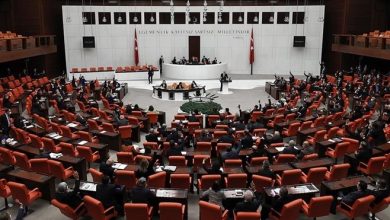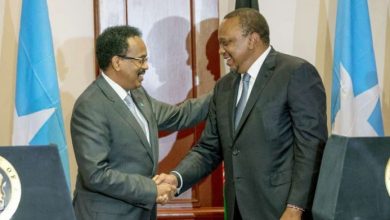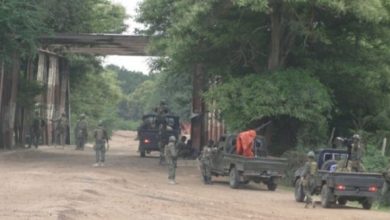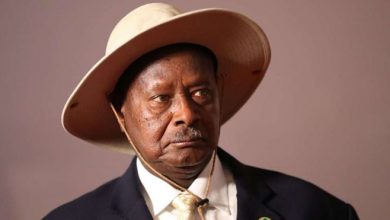Exclusive: House Democrat to introduce new bill punishing Saudi Arabia over Khashoggi
A House Democrat will soon introduce legislation to punish Saudi Arabia over the murder of journalist Jamal Khashoggi — by trying to halt an impending nuclear deal with the country.
A House Democrat will soon introduce legislation to punish Saudi Arabia over the murder of journalist Jamal Khashoggi — by trying to halt an impending nuclear deal with the country.
Obtained exclusively by Vox, the bill — nicknamed the “No Nuclear Weapons for Saudi Arabia Act of 2018” — if passed would be the strongest rebuke to Saudi Arabia yet since the uproar over Khashoggi’s fate.
Khashoggi, a US resident, was killed by Saudi officials inside the country’s consulate in Istanbul last month. That led to a major international outcry over his death, including from many in the US who wanted to see the Washington-Riyadh relationship curtailed.
Most of the discussions on how to do that center on stopping billions of dollars in arms sales to the kingdom, but President Donald Trump has repeatedly said he doesn’t want to jeopardize money coming into the United States, and some members of Congress privately worry that stopping weapons shipments to Saudi Arabia might negatively impact jobs.
So instead of doing that, Rep. Brad Sherman (D-CA) wants to stop a major nuclear deal between the US and Saudi Arabia that’s been under negotiation for months, and which he has long railed against.
“I don’t think this bill would’ve passed prior to the events in Istanbul,” Sherman told me. “Now I think we have a chance.” It’s also very possible a Republican will co-sponsor the bill when it’s officially introduced in the next 10 congressional days.
The legislation would do three main things:
- Force Trump to submit a “123 Agreement,” or a set of rules that make it legal for the US to sell nuclear technology to another country, for congressional approval
- Force the administration to tell Congress that Saudi Arabia will abide by the agreement’s “Gold Standard” (more on that below) and an inspections agreement with the International Atomic Energy Agency, the world’s nuclear watchdog
- Require the administration to write reports on Saudi Arabia’s probe into Khashoggi’s murder and the state of human rights in the kingdom
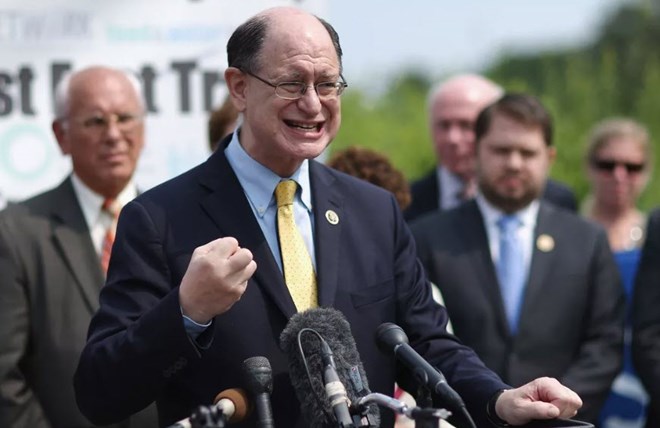
Rep. Brad Sherman (D-CA) has drafted legislation to stop a US-Saudi nuclear deal. Chip Somodevilla/Getty Images
Sherman’s bill could completely block Saudi Arabia’s plans to obtain nuclear technology from the United States, especially since there’s growing bipartisan support to reprimand Riyadh over Khashoggi.
It would come as a big blow to Saudi Arabia: Crown Prince Mohammed bin Salman, the kingdom’s de facto ruler, more commonly known as MBS, launched a project on Monday to build his country’s first nuclear research reactor.
There’s also some bipartisan support to stop nuclear talks with Riyadh in the Senate.
Sens. Edward Markey (D-MA) and Marco Rubio (R-FL), for example, have sent letters to Trump requesting he at least suspend negotiations with Saudi Arabia over the nuclear deal. It’s unclear if either of them will draft parallel legislation to the House version, although a spokesperson for Rubio’s office told me the senator “possibly” could consider a bill in the future. Markey’s office didn’t respond to repeated requests for comment.
Since there’s energy on Capitol Hill for this idea, many experts say lawmakers should do what they can to scuttle a potential accord before the window closes.
“The US should suspend negotiations immediately,” Sharon Squassoni, a nuclear expert at George Washington University, told me.
What a “123 Agreement” does
As of now, a Trump-signed “123 agreement” with Saudi Arabia would go into effect after a 90-day period if Congress doesn’t object to it with a veto-proof majority.
But Rep. Sherman’s bill, if passed, would require Congress to vote in favor of the deal to happen. And if Congress chose not to vote on the agreement, the nuclear accord would also die.
The nickname for the deal comes from Section 123 of the 1954 US Atomic Energy Act, which establishes the criteria for the US to sell nuclear materials to other countries. If a country wants to buy nuclear equipment from the US — say, a reactor — it must meet nine conditions, which include:
- Ensuring the materials are safe at all times
- Not allowing the transfer of classified data without US permission
- Prohibiting the use of the materials to make nuclear bombs or for any military purpose
But the law doesn’t bar a country from using the program to enrich and reprocess uranium to make a bomb. That’s why many experts and government officials want Saudi Arabia to promise not to do that, holding it to the “Gold Standard” for these kinds of deals. The United Arab Emirates signed a “Gold Standard” deal with the US in 2009, and Sherman told me penning a similar agreement with Riyadh would be an improvement.
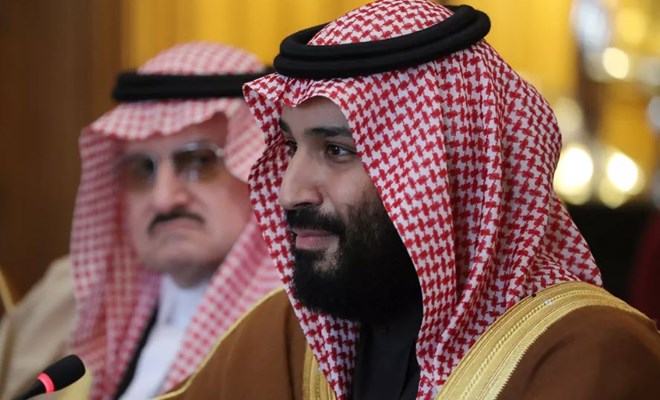
Saudi Crown Prince Mohammed bin Salman wants nuclear power for his country. Dan Kitwood – WPA Pool/Getty Images
American companies have already lined up to sell and build nuclear parts for Saudi Arabia, since Washington and Riyadh have been discussing this deal for months. However, one congressional aide tells me “there has been no recent engagement with the Saudis on any 123 agreement.” But Christopher Ford, a top State Department official for nuclear weapons, traveled to Saudi Arabia in July and almost certainly brought the issue up.
It’s possible that US firms won’t win the contracts, Kingston Reif, a nuclear expert at the Arms Control Association, told me, in part because Riyadh can get what it needs with fewer restrictions elsewhere.
The Saudis, for example, could turn to Russian or Chinese bidders if they’re rebuffed by the US. Analysts say the Russians and Chinese will probably be less intent on restricting Saudi Arabia’s enrichment or reprocessing ambitions. For that reason, some argue that Washington might have to consider a compromise with Riyadh — a plan that wouldn’t curb the country’s path to a nuclear bomb — in order to sign a deal.
Saudi Arabia could accelerate a nuclear arms race in the Middle East
There’s legitimate concern about what Riyadh would do with a brand new nuclear reactor if this indeed happens.
On March 18, MBS openly admitted on CBS’s 60 Minutes that obtaining a nuke was a possibility. “Saudi Arabia does not want to acquire any nuclear bomb, but without a doubt, if Iran developed a nuclear bomb, we will follow suit as soon as possible,” he said.
Iran is Saudi Arabia’s key rival in the Middle East, and they’ve made gains toward obtaining a nuclear weapon in past. Saudi Arabia is worried Iran could use its civil nuclear program to make weapons in the future, and tip the balance of power in the region in its favor.
There are other signs that Saudi Arabia’s burgeoning nuclear program is really all about weapons — and not mainly for energy — like it repeatedly says. One possible indicator is that Riyadh has focused on nuclear energy and not renewable energy to bring power to its millions of citizens.
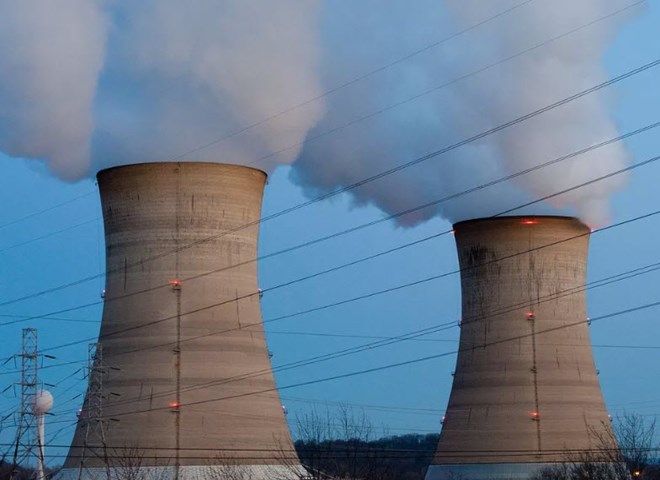
The Three Mile Island nuclear plant is seen in the early morning hours March 28, 2011, in Middletown, Pennsylvania. Jeff Fusco/Getty Images
Joe Romm, a former assistant secretary of the Department of Energy during the Clinton years, told Vox’s Zeeshan Aleem in March that Saudi Arabia is an outstanding candidate for using solar energy to power much of the country. Its vast and extremely sunny deserts are naturally suited to providing electricity to the country during the day.
That’s led to major suspicions that Riyadh wants a pathway to building nuclear weapons. If that’s the case, the US may soon help them. And if not, the Gulf monarchy may still get that assistance elsewhere. That means a nuclear arms race in the Middle East between two regional powers may be on the horizon — with or without America’s input.
“If powerful elements in Riyadh can’t be trusted with a bone saw,” says Sherman, “you can’t trust them with a nuclear weapon.”


